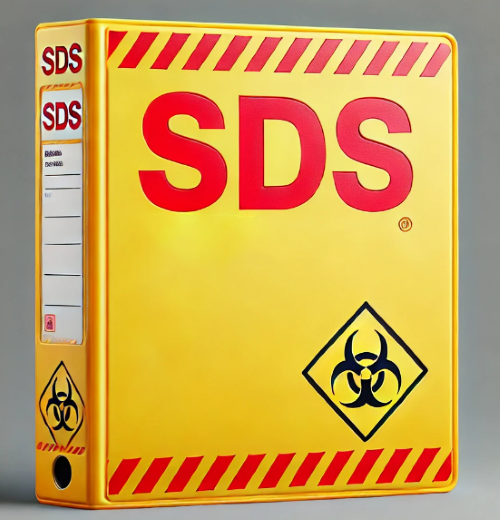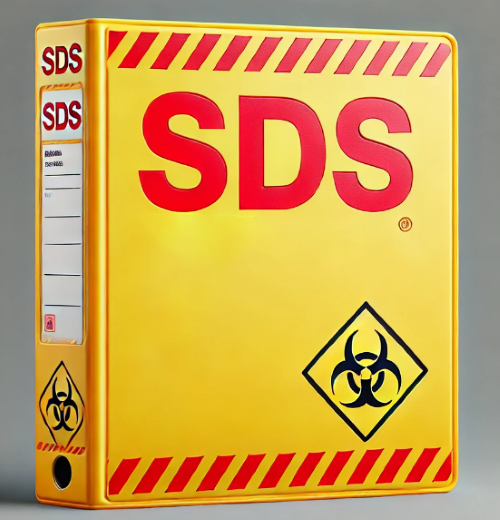MSDS of Tungsten Hexafluoride
1 Identification of Substance
Product Name | Tungsten(VI) Hexafluoride |
Formula | F6W |
CAS Number | 7783-82-6 |
Supplier | Stanford Advanced Materials 23661 Birtcher Dr., Lake Forest, CA 92630 Tel :(949) 407-8904 Email: sales@samaterials.com |
Recommended Uses | Laboratory chemicals, Synthesis of substances |
2 Composition/Data on Components
Ingredient: Tungsten hexafluoride
CAS#: 7783-82-6
%: 100
EC#: 232-029-1
3 Hazards Identification
GHS Classification in accordance with 29 CFR 1910 (OSHA HCS)
Gases under pressure (Compressed gas), H280
Acute toxicity, Oral (Category 3), H301
Acute toxicity, Dermal (Category 3), H311
Skin corrosion (Category 1B), H314
Serious eye damage (Category 1), H318
4 First Aid Measures
General information | Consult a physician. Show this safety data sheet to the doctor in attendance. Move out of the dangerous area. |
After inhalation | If breathed in, move the person into the fresh air. If not breathing, give artificial respiration. Consult a physician. |
After skin contact | Take off the contaminated clothing and shoes immediately. Wash off with soap and plenty of water. Take the person immediately to the hospital. Consult a physician. Treatment with calcium gluconate paste is recommended. |
After eye contact | Rinse opened eye for at least 15 minutes under running water. Continue rinsing eyes during transport to the hospital. |
After swallowing | Rinse mouth with water. Consult a physician. Seek medical treatment. Do NOT induce vomiting. Never feed anything to an unconscious person. |
5 Fire Fighting Measures
Suitable extinguishing agents: Use water spray, alcohol-resistant foam, dry chemical or carbon dioxide.
Advice for firefighters: Wear self-contained breathing apparatus for firefighting if necessary.
6 Accidental Release Measures
Person-related safety precautions | Wear respiratory protection. Avoid breathing vapors, mist, or gas. Ensure adequate ventilation. Evacuate personnel to safe areas. |
Measures for environmental protection | Prevent further leakage or spillage if safe to do so. Do not allow material to be released into the environment without proper governmental permits. |
Measures for cleaning/collecting | Clean up promptly by sweeping or vacuuming. |
See Section 7 for information on safe handling.
See Section 8 for information on personal protection equipment.
See Section 13 for disposal information.
7 Handling And Storage
Handling: Avoid contact with skin and eyes. Avoid inhalation of vapor or mist.
Storage: Keep the container tightly sealed. Store it in a cool, dry, and well-ventilated place.
Information about storage in one common storage facility: Do not store together with oxidizing and acidic materials.
Specific end use(s): Apart from the uses mentioned in section 1, no other specific uses are stipulated.
8 Exposure Controls and Personal Protection
Component | CAS-No. | Value | Control parameters (mg/m3) | Basis |
Tungsten(VI) fluoride | 7783-82-6 | TWA | 2.5 | USA. Occupational Exposure Limits (OSHA) -Table Z-1 Limits for Air Contaminants |
Remarks | CAS number varies with compound | |||
TWA | 2.5 | USA. Occupational Exposure Limits (OSHA) -Table Z-2 | ||
Z37.28-1969 | ||||
TWA | 2.5 | USA. ACGIH Threshold Limit Values (TLV) | ||
Bone damage Fluorosis Substances for which there is a Biological Exposure Index or Indices (see BEI® section) Not classifiable as a human carcinogen varies | ||||
TWA | 5 | USA. ACGIH Threshold Limit Values (TLV) | ||
Lower Respiratory Tract irritation varies | ||||
STEL | 10 | USA. ACGIH Threshold Limit Values (TLV) | ||
Lower Respiratory Tract irritation varies | ||||
TWA | 5 | USA. NIOSH Recommended Exposure Limits | ||
ST | 10 | USA. NIOSH Recommended Exposure Limits | ||
TWA | 2.5 | USA. ACGIH Threshold Limit Values (TLV) | ||
Bone damage Fluorosis Substances for which there is a Biological Exposure Index or Indices (see BEI® section) Not classifiable as a human carcinogen varies | ||||
TWA | 2.5 | USA. Occupational Exposure Limits (OSHA) -Table Z-1 Limits for Air Contaminants | ||
CAS number varies with compound | ||||
TWA | 5 | USA. ACGIH Threshold Limit Values (TLV) | ||
Lower Respiratory Tract irritation varies | ||||
STEL | 10 | USA. ACGIH Threshold Limit Values (TLV) | ||
Lower Respiratory Tract irritation varies | ||||
TWA | 2.5 | USA. ACGIH Threshold Limit Values (TLV) | ||
Bone damage Fluorosis Substances for which there is a Biological Exposure Index or Indices (see BEI® section) Not classifiable as a human carcinogen varies | ||||
TWA | 5 | USA. NIOSH Recommended Exposure Limits | ||
ST | 10 | USA. NIOSH Recommended Exposure Limits | ||
TWA | 5 | USA. OSHA -TABLE Z-1 Limits for Air Contaminants -1910.1 | ||
STEL | 10 | USA. OSHA -TABLE Z-1 Limits for Air Contaminants -1910.1 | ||
TWA | 2.5 | USA. OSHA -TABLE Z-1 Limits for Air Contaminants -1910.1 | ||
PEL | 5 | California permissible exposure limits for chemical contaminants (Title 8, Article 107) | ||
STEL | 10 | California permissible exposure limits for chemical contaminants (Title 8, Article 107) | ||
PEL | 2.5 | California permissible exposure limits for chemical contaminants (Title 8, Article 107) | ||
Biological occupational exposure limits
Component | CAS-No. | Parameters | Value | Biological specimen | Basis |
Tungsten(VI) fluoride | 7783-82-6 | Fluoride | 3.0000 mg/g | In urine | ACGIH -Biological Exposure Indices (BEI) |
Remarks | Prior to shift (16 hours after exposure ceases) | ||||
Fluoride | 10.0000 mg/g | In urine | ACGIH -Biological Exposure Indices (BEI) | ||
End of shift (As soon as possible after exposure ceases) | |||||
Fluoride | 2 mg/l | Urine | ACGIH -Biological Exposure Indices (BEI) | ||
Prior to shift (16 hours after exposure ceases) | |||||
Fluoride | 3 mg/l | Urine | ACGIH -Biological Exposure Indices (BEI) | ||
End of shift (As soon as possible after exposure ceases) | |||||
9 Physical and Chemical Properties
Form | Compressed gas |
Color | Light yellow |
Melting point/Melting range | 2.3 °C (36.1 °F) - lit. |
Boiling point/Boiling range | 17.5 °C (63.5 °F) - lit. |
Flash point | Not applicable |
Evaporation rate | No data available |
Flammability (solid, gas) | No data available |
Upper/lower flammability or explosive limits | No data available |
Vapour pressure | No data available |
Vapour density | No data available |
Relative density | No data available |
Water solubility | No data available |
Partition coefficient: n-octanol/water | No data available |
Auto-ignition temperature | No data available |
Decomposition temperature | No data available |
Viscosity | No data available |
Explosive properties | No data available |
Oxidizing properties | No data available |
10 Stability And Reactivity
Chemical stability: Stable under recommended storage conditions.
Conditions to avoid: Avoid moisture.
Materials to avoid: Avoid waterglass.
11 Toxicological Information
Acute toxicity | No data available |
On the skin | No data available |
On the eye | No data available |
Sensitization | No data available |
Germ cell mutagenicity | No data available |
Carcinogenicity | IARC: No component of this product present at levels greater than or equal to 0.1% is identified as a probable, possible, or confirmed human carcinogen by IARC. NTP: No component of this product present at levels greater than or equal to 0.1% is identified as a known or anticipated carcinogen by NTP. OSHA: No component of this product present at levels greater than or equal to 0.1% is identified as a carcinogen or potential carcinogen by OSHA. |
Reproductive toxicity | No data available |
Aspiration hazard | No data available |
Additional Information | RTECS: YO7720000 Fluoride ions can reduce serum calcium levels possibly causing fatal hypocalcemia. Material is extremely destructive to tissue of the mucous membranes and upper respiratory tract, eyes, and skin., spasm, inflammation, and edema of the larynx, spasm, inflammation, and edema of the bronchi, pneumonitis, pulmonary edema, burning sensation, Cough, wheezing, laryngitis, Shortness of breath, Headache, Nausea, Symptoms may be delayed., Fluoride ions can reduce serum calcium levels possibly causing fatal hypocalcemia., Prolonged or repeated exposure may cause: perforation of the nasal septum, and excessive calcification of the bones, ligaments, and tendons. Stomach - Irregularities - Based on Human Evidence Stomach - Irregularities - Based on Human Evidence |
12 Ecological Information
Toxicity | No data available |
Persistence and degradability | No data available |
Bioaccumulative potential | No data available |
Mobility in soil | No data available |
Results of PBT and vPvB assessment | PBT/vPvB assessment not available as chemical safety assessment not required/not conducted |
Other adverse effects | No data available |
13 Disposal Considerations
Product recommendation: Offer surplus and non-recyclable solutions to a licensed disposal company. Contact a licensed professional waste disposal service to dispose of this material.
Uncleaned packaging recommendation: Dispose of as unused product.
14 Transport Information
DOT regulations | UN number: 2196 Class: 2.3 (8) Proper shipping name: Tungsten hexafluoride Reportable Quantity (RQ): Poison Inhalation Hazard: Hazard zone B |
IMDG | UN number: 2196 Class: 2.3 (8) EMS-No: F-C, S-U Proper shipping name: TUNGSTEN HEXAFLUORIDE |
IATA | UN number: 2196 Class: 2.3 (8) Proper shipping name: Tungsten hexafluoride IATA Passenger: Not permitted for transport IATA Cargo: Not permitted for transport |
15 Regulations
15.1 Product Related hazard Information
SARA 302 Components | No chemicals in this material are subject to the reporting requirements of SARA Title III, Section 302. |
SARA 313 Components | This material does not contain any chemical components with known CAS numbers that exceed the threshold (De Minimis) reporting levels established by SARA Title III, Section 313. |
SARA 311/312 Hazards | Sudden Release of Pressure Hazard, Acute Health Hazard, Chronic Health Hazard. |
15.2 National Regulations
Massachusetts Right to Know Components
No components are subject to the Massachusetts Right to Know Act.
California Right to Know Components
This product does not contain any chemicals known to the State of California to cause cancer, birth defects, or any other reproductive harm.
Pennsylvania Right to Know Components
Component | CAS-No. |
Tungsten(VI) fluoride | 7783-82-6 |
New Jersey Right to Know Components
Component | CAS-No. |
Tungsten(VI) fluoride | 7783-82-6 |
16 End of Data Sheet
This material safety data sheet is offered solely for your information, consideration, and investigation. Stanford Advanced Materials provides no warranties, either express or implied, and assumes no responsibility for the accuracy or completeness of the data contained herein.


